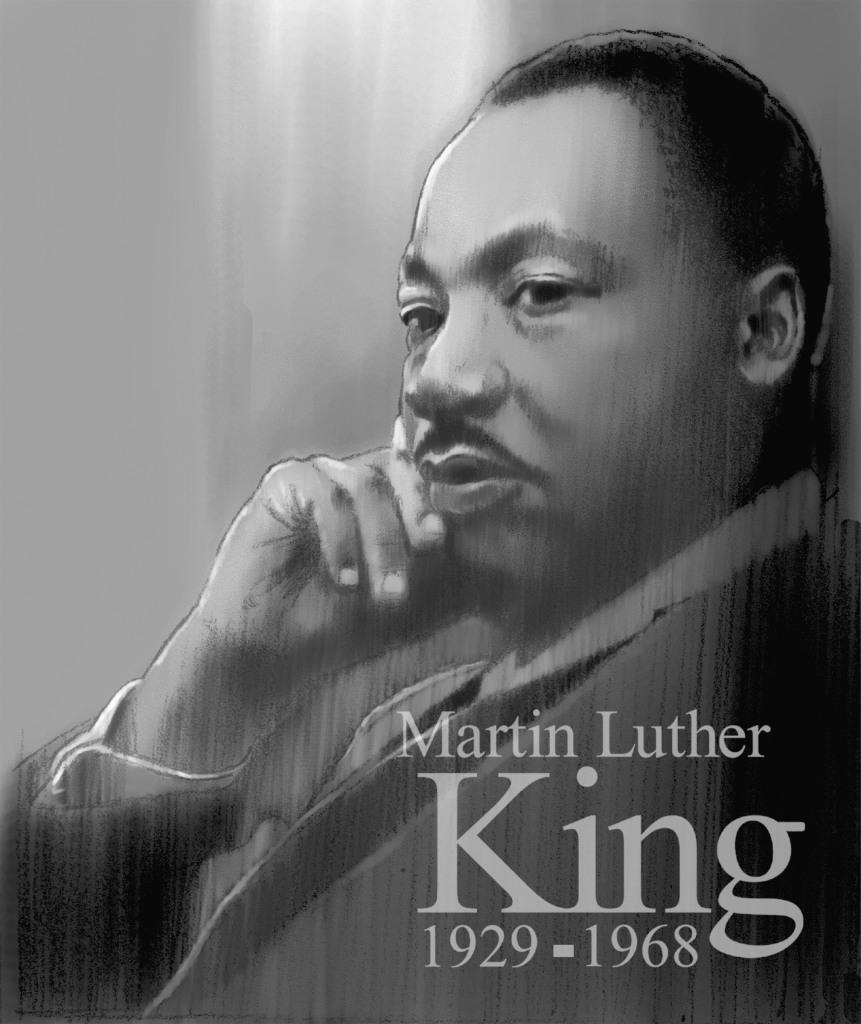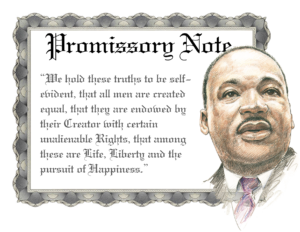This year’s celebration of the life of Dr. Martin Luther King, Jr., is perhaps even more poignant than in years past. The website National Today states, “Each year on the third Monday of January we observe Martin Luther King, Jr. Day and reflect on the work that still needs to be done for racial equality. This January 18, make the holiday more than just a day off and take time to reflect and take action on civil rights issues across the globe.”[1] This past year has been filled with both hope and heartache in the area of civil rights. The deaths of George Floyd, Breonna Taylor, and other persons of color at the hands of police rekindled the Black Lives Matter movement across the nation. The good news is, for the first time in years, many people across the country awoke to the awful toll racial prejudice has inflicted upon this nation. The bad news, some demonstrations turned violent as lawbreakers sullied the message organizers were trying to get across.
The damage done to the civil rights movement by the lawless criminals who took advantage of otherwise peaceful BLM demonstrations was never more clearly demonstrated than during the latest hearings to impeach the President. Instead of focusing on the insurrectionist violence of 6 January and the President’s role in inciting it, Republican after Republican stood up and pointed to the violence associated with BLM demonstrations asking where the Democrats’ outrage was when it occurred. Dr. King would have decried the violence associated with the BLM movement — he also would have wept at the sight of white supremacists marching through the capitol building carrying Confederate flags. Martin Luther King, Jr., Day is a time to reflect on the principles he promoted as well as the greatness of his struggle for equal rights. One of the most enduring principles he taught was that lasting change is only brought about through non-violent means.
Dr. King stated, “At the center of non-violence stands the principle of love.” He added, “Hate cannot drive out hate; only love can do that. Hate multiplies hate, violence multiplies violence, and toughness multiplies toughness in a descending spiral of destruction.” He was convinced that America would only live up to the ideal that all men are created equal when love replaced hate. He stated, “In spite of temporary victories, violence never brings permanent peace. It solves no social problem; it merely creates new and more complicated ones.” We are seeing that clearly in today’s difficult political environment. Dr. King’s response to the violence we witness today would be the same response he made decades ago. He preached, “Nonviolence is the answer to the crucial political and moral questions of our time — the need for mankind to overcome oppression and violence without resorting to violence and oppression. Civilization and violence are antithetical concepts.” The lyrics of Michael Jackson’s song “Man in the Mirror” state:
I’m starting with the man in the mirror
I’m asking him to change his ways
And no message could have been any clearer
If you want to make the world a better place
Take a look at yourself, and then make a change
Dr. King embraced that principle. He taught, “Nonviolence means avoiding not only external physical violence but also internal violence of spirit. You not only refuse to shoot a man, but you refuse to hate him.” The incivility we have seen in politics in the twenty-first century will continue until we understand that hate must be replaced with understanding and fear must be replaced by hope. Dr. King committed himself to the long view. He stated, “With patient and firm determination we will press on until every valley of despair is exalted to new peaks of hope, until every mountain of pride and irrationality is made low by the levelling process of humility and compassion; until the rough places of injustice are transformed into a smooth plane of equality of opportunity; and until the crooked places of prejudice are transformed by the straightening process of bright-eyed wisdom.” He was not discouraged by lies and fake news. He insisted, “I believe that unarmed truth and unconditional love will have the final word in reality. This is why right temporarily defeated is stronger than evil triumphant.”
One of the questions Dr. King might ask, were he still alive, is this: What are you doing to promote racial harmony and equality? He once stated, “In the End, we will remember not the words of our enemies, but the silence of our friends.” Companies can no longer remain silent in the effort to improve the lives of people regardless of their race, creed, sexual orientation or color. Boston Consulting Group (BCG) analysts, Justin Dean, Ashley Grice, Chip Gross, and M. Très Watson, insist, “Racial equity and social justice are not just public- or social-sector issues. They are everyone’s issues.”[2] They suggest three steps business leaders can take to advance social justice:
1. Listen first, then issue timely statements of values and beliefs. The BCG analysts explain, “The current context reveals what has been in plain sight to many; employees, colleagues, associates, and friends of color who have traditionally been underrepresented will be especially vulnerable. By listening and committing to learning, meaningful dialogue can take place. Every organization can better support employees, as well as infer what actions to avoid that might spare those who are already hurting from unintentional, further wrong.” In other words, business leaders can no longer remain silent. They add, “Listening and expressing beliefs is not a one-and-done affair. As events unfold — and as we witness continued tragedy and unrest — leaders need to reaffirm these beliefs, humbly and judiciously. Doing so demonstrates to stakeholders and the public that your values and concerns are prominent and sincere.”
2. Commit to bold action. Before action can be taken, business leaders must come to grips with what can be done. What can be done may involve small steps as well as bold actions. The BCG analysts write, “Even with a well-orchestrated and holistic change program under way, substantive outcomes might take time to become visible. To sustain support through this ambiguous interim, tap into your organization’s purpose to inform bold commitments that demonstrate intent and guide concrete action.” They ask, “What might your own company’s bold commitments be when it comes to diversity, equality, and inclusion?” They add, “This is not about simply setting benchmarks, since DEI is not about hitting quotas. Rather, it’s about acting in a way that is demonstrably and palpably inclusive and supportive to stakeholders.”
3. Use your organization’s unique role in the world to advocate for long-term structural change. The world’s largest companies have a unique role to play when it comes to social justice — they have a bully pulpit that smaller businesses don’t have. Nevertheless, leaders of businesses of every size can do something. The BCG analysts note, “Because reducing systemic racism means attacking the disease rather than its symptoms, organizations will need to take continuous action, create strategic and creative partnerships, and demonstrate unwavering dedication — all of which takes tremendous energy.
That’s why leaning into purpose — which provides both the rallying cry and the motivation to engage employees’ discretionary effort, while illuminating a clear and mutual path — is so suited to effecting substantive long-term change.”
We all can do something to further the cause of social justice that Dr. King so desperately sought. Concerning those who opposed his efforts, he explained, “I have tried to offer them my deepest compassion while maintaining my conviction that social change comes most meaningfully through nonviolent action.” It’s a conviction we should all embrace in the coming days and years.
Footnotes
[1] Staff, “Martin Luther King, Jr. Day – January 18, 2021,” National Today.
[2] Justin Dean, Ashley Grice, Chip Gross, and M. Très Watson, “Channeling Outrage into Purpose-Driven Action,” Boston Consulting Group, 30 November 2020.





